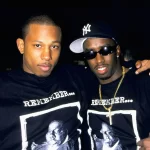
In the landscape of legal battles involving high-profile figures, the trials of Sean “Diddy” Combs and Jeffrey Epstein have drawn significant public and media attention, not just for the gravity of the charges but also for the underlying themes of power, influence, and the exploitation of vulnerable individuals.
The Accusations:
Sean “Diddy” Combs, a titan in the music industry, has been embroiled in legal issues culminating in a 2024 trial where he faces charges of sex trafficking, racketeering, and transportation to engage in prostitution. The allegations detail Combs orchestrating what has been referred to in legal documents as “freak offs,” elaborate sexual performances involving coercion, drugs, and physical force.
Similarly, Jeffrey Epstein, before his death in 2019, was charged with sex trafficking of minors, with his case revealing a network of high-profile individuals allegedly involved in the exploitation of underage girls. Epstein’s associate, Ghislaine Maxwell, was convicted in 2021 for her role in facilitating Epstein’s crimes, highlighting a complex web of recruitment, coercion, and cover-up.
Connections in Criminality:
While the specific charges against Combs and Epstein differ in their details, the core of their cases touches on themes of using one’s status and resources to manipulate and control victims:
- Power Dynamics: Both cases illustrate how wealth and influence can be wielded to create environments where abuse can occur unchecked. Epstein used his connections and wealth to create a façade of untouchability, while Combs allegedly used his industry power to both lure victims and silence them.
- Manipulation and Coercion: In both scenarios, victims were often lured under pretenses of career advancement or personal relationships, only to be coerced into sexual acts. For Epstein, it was the promise of educational or career opportunities; for Combs, it involved the allure of the music and entertainment industry.
- Legal and Public Scrutiny: The legal proceedings of both individuals have been under intense scrutiny. Epstein’s case, even after his death, continues to unravel with implications for many in his circle. Combs’s trial, with its detailed accounts of misconduct, sheds light on the darker aspects of the entertainment industry.
Public and Legal Response:
The response to these trials reveals a shifting societal tolerance for such abuses of power. The #MeToo movement and increased awareness about sex trafficking have likely influenced the public’s and legal system’s approach to these cases:
- Media Coverage: Both trials have been media spectacles, reflecting society’s fascination and horror with how deep the misuse of power can run. The coverage has often drawn parallels, not in the specifics of the crimes, but in the broader narrative of ‘the fall of the mighty.’
- Legal Precedents: These cases might set or reinforce precedents on how crimes involving sexual exploitation are prosecuted, especially when high-profile figures are involved. The legal strategies in Combs’s case, like the detailed evidence presented and the discussion around bail, echo the complexities seen in Epstein’s legal battles.
Conclusion:
While the legal specifics of Sean “Diddy” Combs’s and Jeffrey Epstein’s cases are distinct, they resonate with similar undercurrents: the exploitation of power for sexual misconduct, the intricate cover-ups, and the eventual fall from grace under legal scrutiny. These cases not only challenge the legal system but also provoke a societal reflection on celebrity, accountability, and justice. Whether these trials will lead to lasting changes in how such crimes are prevented or prosecuted remains to be seen, but they undeniably spotlight the need for vigilance against the abuse of power in any form.



